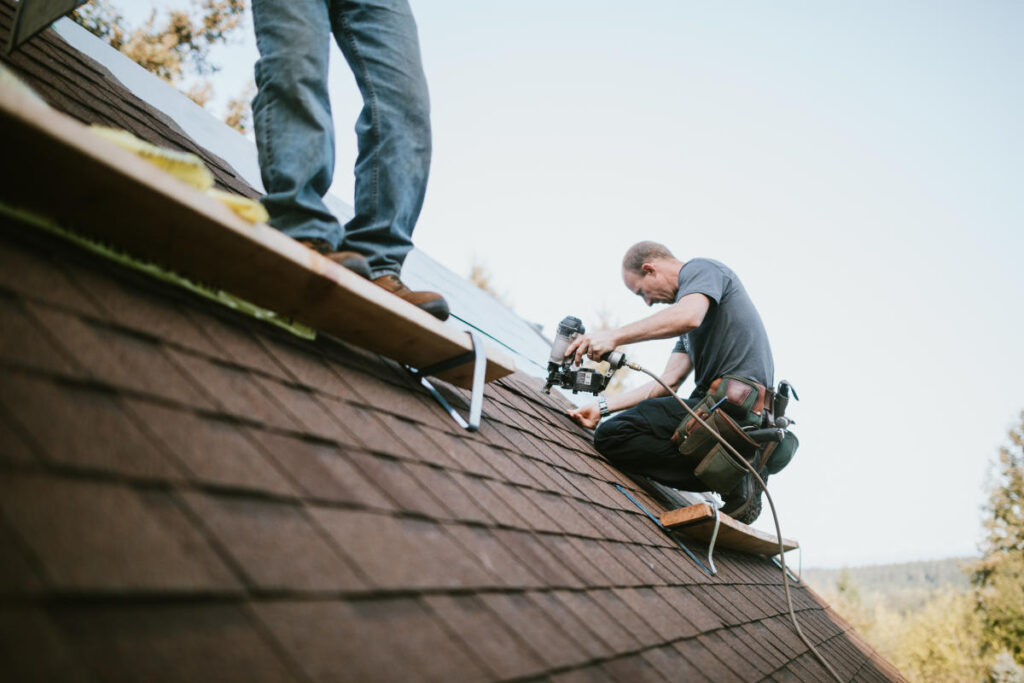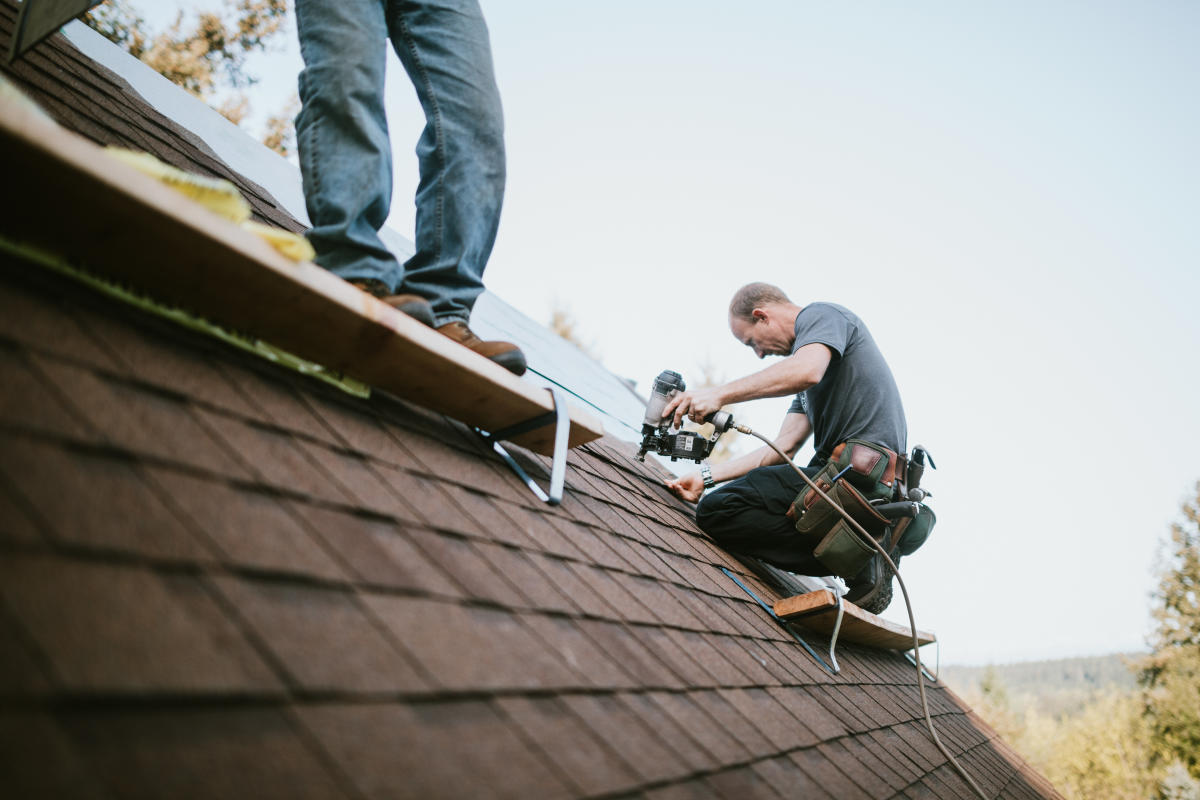How to recession-proof your house as a homeowner


Recessions typically mean bad things for homeowners. Real estate quickly loses value, and many homeowners find themselves owing more on their homes than they’re worth, which is known as being underwater on their mortgage. And if they need to sell due to a layoff or other recession-related issue? That could mean taking a financial loss and owing your lender money even after the sale goes through.
Unfortunately, a recession may soon be upon us. Researchers at JPMorgan put the chances of a 2025 recession at about 60%, while the International Monetary Fund estimates a 40% chance as of its April economic outlook.
“A recession doesn’t have to catch you off guard, though,” said Matthew Argyle, a certified financial planner at Encore Retirement Planning, via email. “With the right prep, your home can be more than a roof over your head — it can be a buffer, a backup plan, and even a source of income. Small moves now mean fewer regrets later.”
Are you looking to minimize those regrets and protect your house and wealth against a recession? Here’s what you can do today to help.
Learn more: When will the housing market crash again?
In this article:
One of the best things you can do is start stowing away cash. This gives you a financial safety net if you lose income and can’t make your mortgage payments, and it gives you funds to cover home repairs or other unexpected costs as they come up.
“Make sure you have ample cash on hand,” said Christopher Mediate, president of Mediate Financial Services, via email. “Then, if something goes wrong — roof, heating/cooling units, etc. — you will have the money to fix it.”
Just be careful about how you’re storing those emergency funds, experts say.
“I commonly hear clients tell me that they have an equity line on their home that they could use if times got tough as a replacement for having a traditional emergency fund,” said Stephan Shipe, a flat-fee financial advisor and founder of Scholar Financial Advising, via email. “What they don’t realize is that the bank can shut down or reduce these equity lines very easily and without your consent. This removes that liquidity option and can put them in a tight spot.”
To ensure easy accessibility — and that your savings earn some interest — make sure you’re storing your funds in a high-yield savings account. You can withdraw money more easily than with a HELOC, certificate of deposit, or investment account. Always shop around to get the best rate.
If your home needs repairs, maintenance, or an annual tune-up, now is the time to get them done.
“Recessions don’t care if your water heater fails or your roof springs a leak,” Argyle said. “Fix small issues now — because when times are tight, delayed maintenance gets expensive fast.”
Argyle advised focusing on bigger-system items first: HVAC, plumbing, and roofing issues that could quickly amount to big-ticket repairs. If you can, take some time to learn how to DIY some of your home’s regular maintenance tasks. This could save you cash in the future, should a recession hit.
“Economic cycles are always unpredictable,” Mediate said. “If you’re concerned about protecting your asset even during a recession, then you need to be proactive.”
Learn more: How much does it cost to replace a water heater?
If you can spare the funds, investing a little in improving your home’s value is another smart pre-recession move. This will help give you more equity and help offset (at least partially) the value drops that typically come with a recession.
“Always look to increase the equity you have in your house,” Mediate said. “The more equity you have, the more protection you will have from falling values.”
You should also think about curb appeal — things like landscaping and exterior painting. These can help keep your home marketable to potential buyers if you need to sell the house.
Finally, think about making your home more energy efficient. Not only will this increase your home’s value, but it could save you money on utility bills. That can be a significant help if you’re ever struggling financially.
“Efficiency upgrades aren’t just about going green — they’re about staying lean,” Argyle said. “Smart thermostats, updated insulation, LED lights, even low-flow toilets, these tweaks cut monthly costs and give you cushion if your income takes a hit.”
Think about how you might cope should a recession hit your household hard. What will you do if your income drops and you can no longer afford your housing payment or other bills? There may be a way you can make income from your home to bridge the gap.
“Don’t wait for a crisis to figure out how your home can earn its keep,” Argyle said. “Can the basement be a rental? Can you Airbnb a room or lease garage space for storage?”
You can also use apps to rent out your parking space, closet space, pool, and other amenities. Explore your options, and if anything sounds like it has potential? “Run a trial now,” Argyle advised. “That way, if things get tight, you’re not scrambling — you’re activating a backup plan you already tested.”
You can also explore refinancing your mortgage loan, which could reduce your mortgage payments, particularly in a recession.
“The good news is that recessions generally lead to lower interest rates,” said Matthew Ricci, a home loan specialist and branch manager at Churchill Mortgage, via email. “You could end up finding a good opportunity to either purchase discounted real estate or refinance your existing debt to a lower rate.”
The tricky thing about refinancing in lean financial times is that you have to pay closing costs. If you think refinancing is the right strategy for your family, start setting aside money for closing costs now. Also, shop for the best mortgage refinance lender to find one that will give you a good deal on both the interest rate and fees.
Finally, if a recession is looming, don’t overextend yourself on your house. Avoid taking out a home equity loan or HELOC, and steer clear of a cash-out refinance. All of these will lead to owing more on your house, which is a hazard should home values start to drop.
“Keep your housing debt low and your payments manageable so you have options if your job becomes another recession statistic — or if a smart investment pops up,” Argyle said.
All in all, Shipe recommended having at least a 20% equity buffer if possible if you’re heading into a recession.
“This gives you a cushion to exit your home, possibly at a lower price, and pay the closing costs without having to spend anything out of pocket,” Shipe said.
It’s also best to avoid taking out additional loans and work on reducing your credit card and other debts.
“Having a strong emergency fund and low debt payments will go a long way to helping any homeowner weather a recession,” Ricci said.
Recession-proofing refers to strategies that help you prepare for and potentially minimize the impacts of an incoming recession.
It’s possible to lose your home in a recession. Recessions often come with layoffs, which strain households financially, making it hard to afford mortgage payments and other bills. Failing to make your monthly payments could lead to foreclosure.
To recession-proof your home, make any necessary repairs now, save up a solid emergency fund, safeguard your equity, and consider making updates to improve your home’s value and marketability. Having a backup plan — like renting out a room or refinancing into a lower monthly payment — is also wise.
Interest rates, including mortgage rates, tend to fall during a recession. This could make refinancing your existing mortgage loan more attractive or allow you to finance real estate purchases at a lower cost.
Laura Grace Tarpley edited this article.








